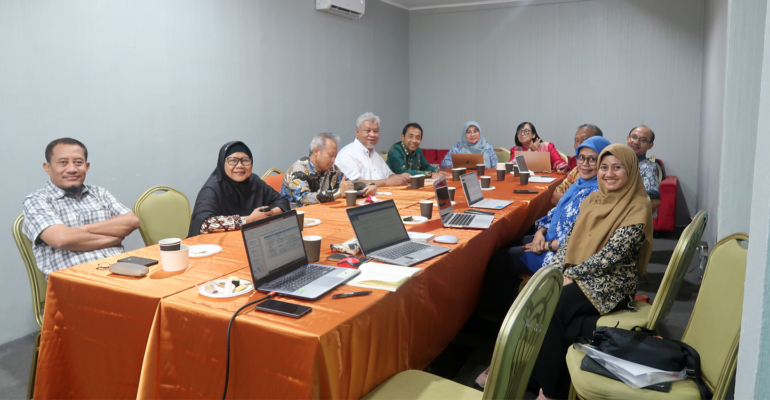IPB University Graduate School Evaluates Professional Engineer Program’s Course Implementation

The Graduate School (SPs) of IPB University conducted an evaluation of the Professional Engineer Program (PPI) Study Program at D’Sawah, Bogor, on August 1. This event focused on assessing the even semester of the 2023/2024 academic year and planning for the odd semester of the 2024/2025 academic year.
Prof Titi Candra Sunarti, Vice Dean of SPs IPB University for Resources, Cooperation, and Development, stated that IPB University has been offering the PPI program based on the Rector’s Decree No. 203/IT3/PP/2019, which mandates the preparation of human resources (HR) with adequate knowledge in higher education for professional engineers. Graduates of the PPI Study Program are classified at level 7 (professional) according to the Indonesian National Qualifications Framework (KKNI) and are awarded the professional title of Engineer (Ir).
“Currently, the PPI Study Program offers seven engineering majors, including agriculture and agricultural products, fisheries and marine sciences, animal husbandry, forestry, agricultural industry, civil and environmental engineering, and applied sciences,” she said.
Prof Romli, Chief of the PPI Study Program at IPB University, noted that the program has graduated 722 individuals through the Recognition of Prior Learning (RPL) pathway, covering various biological engineering fields.
“Prospective students for the regular PPI program include fresh graduates with a bachelor’s degree in engineering, as well as those holding a Bachelor of Education (SPd) or Bachelor of Science (SSi) in engineering-related fields,” he explained.
To ensure regular students graduate on time, Prof Romli emphasized the importance of finalizing the engineering practice proposal by the end of the first semester. “The implementation of engineering practice must be guided by faculty advisors, focusing on practical engineering activities rather than explaining industrial systems. This approach distinguishes between students engaged in engineering practice and those in field practice,” he added.
Meanwhile, Deasy Kartika Rahayu Kuncoro, ST, MT, Secretary of the PPI Study Program, highlighted that the PPI program is conducted through blended learning and/or hybrid learning methods. Blended learning combines synchronous (in-person), asynchronous (Moodle-based), and online (face-to-face via Zoom or other platforms) learning. “Hybrid learning combines in-person and online learning, conducted simultaneously,” she explained. (HBL/Lp) (IAAS/RUM)



